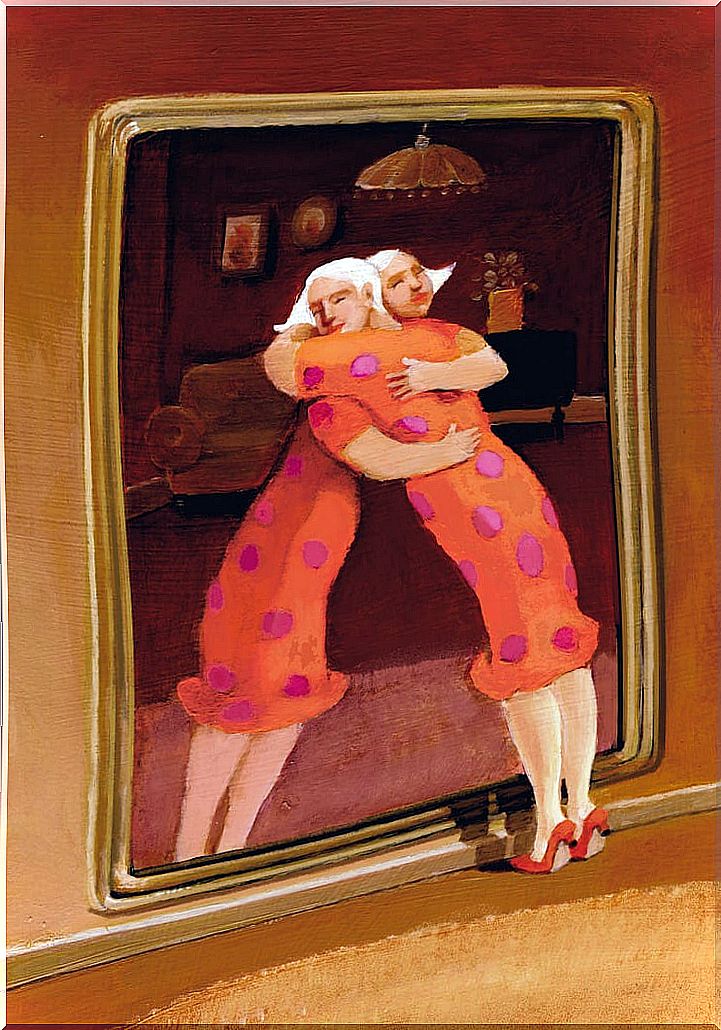The Jump Between Being Right Or Being Happy

Two good friends embarked on a journey. When night fell, they slept side by side under a tree. One of them dreamed that they had taken a boat and were stranded on an island. When he awoke, he asked his friend if he could remember the journey, the ship and the island. He couldn’t believe it when his friend told him he hadn’t had the same dream. Impossible, he couldn’t believe it! He was angry with his friend and refused to accept that he hadn’t had the same dream he had…
Intolerance, ego, pride, misunderstanding and lack of empathy are natural limits that keep us from feeling happy or reaching a state of calm or inner peace.
How willing are we to endure an uncomfortable situation? Do we know how to live together while confronting others, and more importantly, ourselves? Do we really control how we want to balance our pros and cons?
The mismanagement of the tense situations we are involved in keeps us from enjoying hours, weeks and years of enjoying friends, family and our partner just because we want to be right.

Does being right have that much power?
The sense of victory is a powerful drug that we can become addicted to through our pride and ego. But what is the price of staying in that position?
Is the value of what we gain when we are right more important than what we lose? The satisfaction we get from always wanting to be right keeps us from finding peace and robs us of camaraderie, connection, affection, friendship, and support.
In movies and literature you will find plenty of stories in which stubbornness and holding on to your own opinion leads to bad luck and unhappiness. Yet few people learn anything from it.
Behind the motives
There are three main reasons why someone likes to be right:
- Strengthening the ego.
- Reaffirming self-confidence.
- Fear of other positions or loss of power and control.
No one owns the absolute truth. This idea seems to grow within us and emerge during moments of temperance, but sometimes it doesn’t work well when others confront us…
What is the driving factor behind stubbornness?
Anger, fear, frustration and anger. When we see that something has not been resolved to our satisfaction, a number of mechanisms kick in that bring out the negative emotions that hinder our reasonableness and consume our energy.
If we get stuck in a certain position, we lose energy and especially time.
Swearing, manipulation, demands, bullying, emotional dependence and the like are all behaviors of a person who is stuck in his stubbornness. And we don’t normally take pride in this kind of behavior and prefer calmness and flexibility.
How do we get out of this dilemma?
We can ask ourselves questions that help us find a flexible way to deal with it:
- How do I feel about this situation? Finding the right words to describe how we feel promotes thinking broadly and helps us remove “noise” that can disturb the most reasonable aspects of the situation.
- Does the other know how I feel? This goes beyond discussions guided by our emotions, beyond “because you are…” and “I am…”.
- Do I know how the other feels? Sometimes we interpret ourselves how we think someone is feeling. This is nothing more than confirming expressions such as, “He probably thinks…”
- How did the conflict start? What did I want to achieve and what is it that the other person wanted to achieve?

The next step would be to consider alternatives within the conflict and decide how flexible you want to be and how much you want to admit.
Of course, it is important to approach this with sincerity. There’s no point in faking flexibility. At some point the joints will burst and another conflict will arise from this. It will have a different shape and a different language, but still with the same skin.








